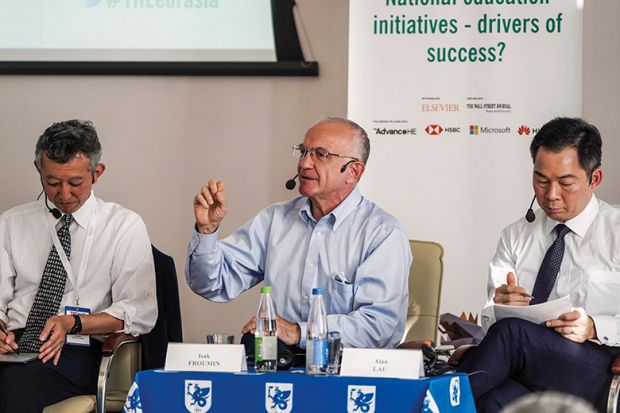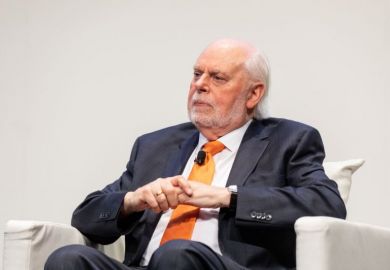State-run excellence initiatives are driving up competition in national higher education sectors but are yet to demonstrate wider societal benefits, a conference has heard.
At Times Higher Education’s Research Excellence Summit: Eurasia, Isak Froumin, head of the Institute of Education at Moscow’s National Research University’s Higher School of Economics, said that governments around the world were pouring money into national drives to boost selected universities’ global standing in the hope that sharpening their performance would deliver wider benefits for society and the economy.
But Professor Froumin told the event, held at Kazan Federal University, that there was limited evidence yet of broader benefits from initiatives such as Russia’s Project 5-100, which aims to get at least five of the country’s universities into the top 100 of the global rankings by 2020.
“There is little evidence of that – it is too early to say,” he said. “But what we have definitely seen is increased competition in higher education.”
The result was that “rich universities become richer, while the poor become poorer”, said Professor Froumin, who is leading research on the issue.
More governments were likely to launch excellence initiatives of their own, Professor Froumin suggested. He said that the improvement in leading Chinese universities’ rankings since the launch of the country’s Double First Class project in 2015 was clear, and he noted that India, one of higher education’s last big sleeping giants, had recently launched its own Institutes of Eminence programme.
As an example of the impact that excellence initiatives could have, Professor Froumin described how one German university that had complained about the injustice of being excluded from the first round of the country’s scheme was nevertheless “eventually forced to increase [its] competitiveness”.
“It’s a tool – governments have to push universities to change somehow,” he said. “Yes, there will be losers, and that’s a real challenge for public policy. But what about the customers? If pupils and employers win, will they care?”
Andrei Volkov, deputy chair of the Russian Excellence Council, acknowledged that there was a “dark side” to initiatives such as Project 5-100, which put “psychological pressure” on universities to become the best in the country and could create more bureaucracy.
“The biggest risk of this kind of initiative [Project 5-100] is that it will create an elite club of the selected universities because everyone wants special status and special money,” he said.
However, Mr Volkov said that this simply underlined the importance of creating “non-stop competition” for the initiatives’ financial resources, with continued funding for universities based on improvements in performance.
For Mr Volkov, the positives of Project 5-100 – forcing real change and providing regional benchmarking – outweigh the negatives.
“I believe it’s a very successful initiative, it’s created a benchmark for the whole Russian university system. In the five years since the start, Russian schools have demonstrated a remarkable speed of change,” he said.
“The whole project is not just about money, not just about ranking, but about the ability for universities to change,” he continued. “They recognise that they need to redesign curricula and research policy for the country’s economic development and end the brain drain of its top researchers.”
POSTSCRIPT:
Print headline: Big bangs ‘yet to bring a new order’
Register to continue
Why register?
- Registration is free and only takes a moment
- Once registered, you can read 3 articles a month
- Sign up for our newsletter
Subscribe
Or subscribe for unlimited access to:
- Unlimited access to news, views, insights & reviews
- Digital editions
- Digital access to THE’s university and college rankings analysis
Already registered or a current subscriber? Login








